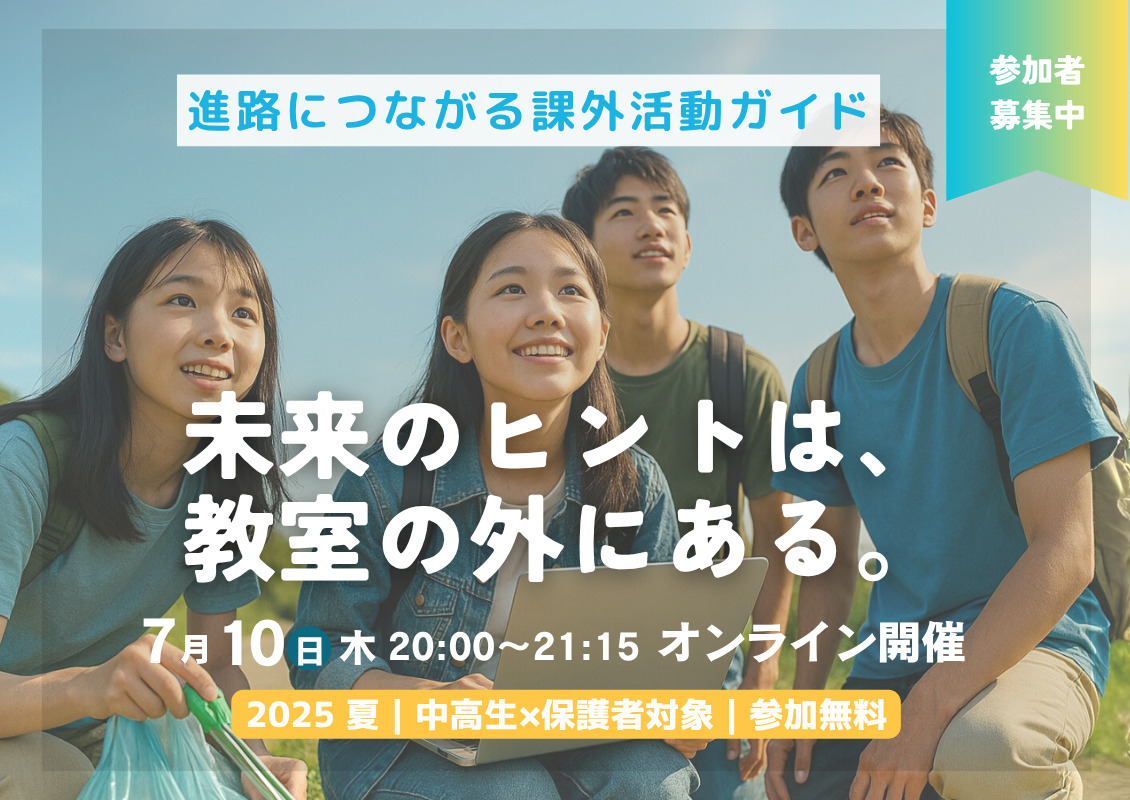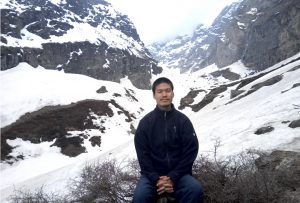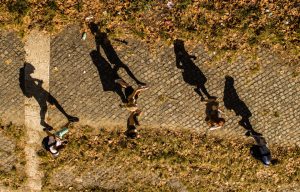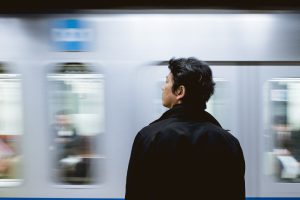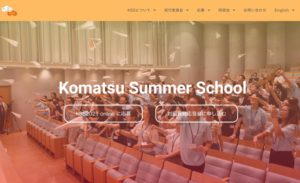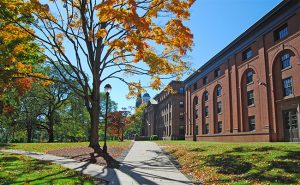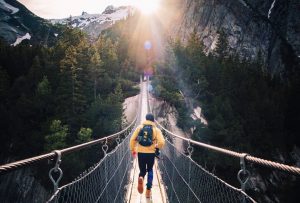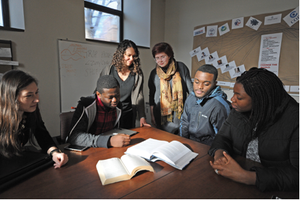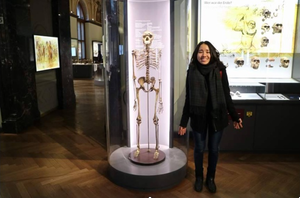【私たちはどう生きるか01】高校→米国大学進学&卒業→現在まで人生をいかに選択してきたか
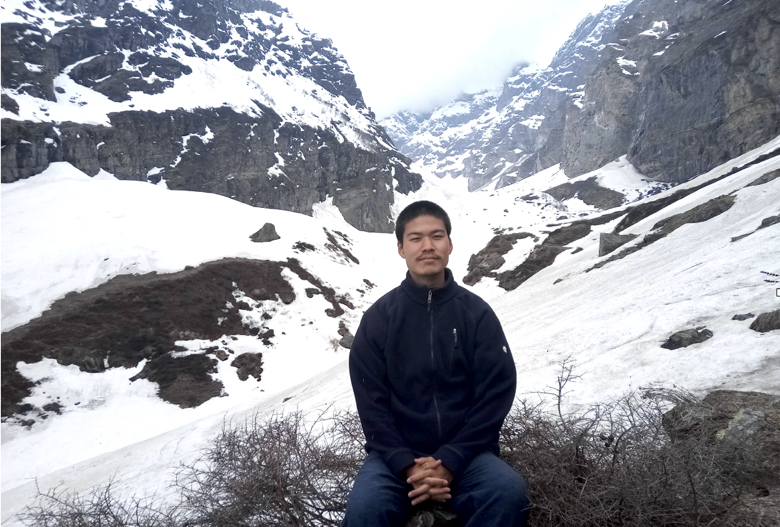

-
- 【第1回】高校→米国大学進学&卒業→現在まで人生をいかに選択してきたか
- 【第2回】米国名門大を出ながら、自分探しとか目的もなく生きて楽しいの?
- 【第3回】競争至上主義の世界で「勝ち抜く」以外に賢い選択肢などあるのか
- 【第4回】人生の価値観や情熱を育める「わたしに相性のいい大学」の選び方
連載「私たちはどう生きるか」がスタートしました。筆者宛に質問、感想をいただいたみなさま、ありがとうございます。本来は複数の質問、感想があったのですが、記事の長さと筆者の都合により、今回はひとつの質問のみをお答えすることになりました。最初にお答えする質問は筆者に関するものです。「犬も歩けば棒に当たる」というような人生を歩んできた筆者の、さまざまな人生選択やきっかけ、海外留学をしている後輩へのメッセージを書きまとめました
人生をいかに選択・決断してきたのですか?
自身の経験から、大学入学前、在学中、卒業後、人生の選択に関して、どのように変遷したのでしょうか。その選択、決断にあたって、きっかけになったのは何だったのですか(人や本との出会いなど)。
また、留学している後輩に一番伝えたいメッセージ、そして、いま一番大事にしていることは何ですか?
(米国在住、社会人・JAさん)
進路選択のたびに、「人としていかに生きるか」を考える転機となっています
■大学入学前(日本の大学の現実に直面し、学びの意味について考える)
ハードコア体育会系と文学青年の間の子(前者と後者は8:2の割合)が大学入学前の私でした。朝夕はひたらすら走り、授業中は眠るか、ドストエフスキー、遠藤周作または村上春樹などの小説家の本を読むのに充てていました。
中学生までは優等生でしたが、親元を離れて高校で寮生活をはじめてからは、自分がこだわったことしかやらない生徒になりました。授業にとどまらず文化祭などの学校行事も、個人的なこだわりのないものは極力やらない主義を貫いていました。おかげで担任の教師には何度も呼び出されましたし、高校3年の物理の教師とは反りが合わず、成績表に2が付けられたことで、のちに受けることとなった奨学金の面接時での笑い話になりました。
ひたすら部活動に打ち込み、余暇は小説に浸るという牧歌的な高校生活にも、やがては終わりが訪れます。高3の夏が過ぎて部活動が終わると、これまではっきりとしていた日常生活の輪郭は曖昧なものになり、自分の生きてきた世界の小ささを痛感しました。
また、この世界の小ささだけではなく、脆さも同時に知るようになりました。かなり早いミッドライフ・クライシス(中年の危機:40〜50代前後の人が自分の生きる意味を問い直すこと)のようなものが私を訪れました。
部活の終わりから2011年の原発事故後の期間にかけて、外側に自分の基準を求め続けるのではなく、内側の変わらない事実を掴まなければならないという確信ができました。まずは自分の頭で物事を考えられなければならない、そのための教育が自分には必要なのだと。
日本の国立大学に入学してすぐ、ここは自分が求める場所ではないと知りました。日本の大学は、往々にして社会に役立つスキルを身につけた専門家を養成するための場所のようでした。私は理系の学部でしたが、文系の学部といえども、重点は教育よりも研究に置かれていました。有名企業への就職もしくは起業家育成、もしくは研究者を育てるのが大学の目的のようで、人間であること、生きることに関する開かれた学びの環境は、ここでは見つからない。私は大学に通うのをやめて、日本の国外を含め、つぎの進路を探しはじめました。
それから、アメリカのリベラルアーツ大学という選択肢を見つけました。ある日出会った、当時「ウェスリアン大学」の2年生で日本出身のフリーマン奨学生のブログには、アメリカのリベラルアーツ大学がいかに学生の知的・文化的・芸術的その他を多面的に教育する理想を掲げ、全人的教育の実践を行っているかが詳細に書かれていました。それから、たくさんのブログや書籍を片端から読み漁り、大学フェアなどに参加して卒業生と話すうちに、アメリカのリベラルアーツ教育が自分の求める場所だという確信が固まりました。数ヵ月後には受験を終えて、第一志望であったウェスリアン大学に、フリーマン奨学金をもらって入学することになりました。
■米国大学へ留学(西洋的知性を得たが、真理は得ることができず失望)
アメリカに渡るまえ、それから在学中も私の頭を占領していたのはつぎの問いでした。
「What the heck is all this about?(この生というものは一体全体なんなのだろう?)」。
昆虫や魚の生育という身近な自然現象から、経済や政治の複雑な社会的現象、そして私たちの内面に立ち起こる心理的現象まで、すべてを理解したいという欲求がありました。このような知的好奇心を満たすのにアメリカのリベラルアーツ大学は最適な場所でしたが、私の好奇心はただの知的領域をはみ出して、「bemusement(当惑、混乱、迷い)」を伴う実存的な性質のものでもありました。在学中の体験を通して、実存的な問いが生の理解のカギを握っていると考えるようになりました。
アメリカのリベラルアーツ大学では、3年時に専攻を決めます。私は哲学を専攻しました。大学2年のときに哲学者ニーチェ(ドイツ、1844年〜1900年)の『ツァラトゥストラはかく語りき』(1883年)に出会い、哲学に惹き込まれました。もとから文学や精神医学といった人間の内面の世界に強い興味があり、なかでも根源的な概念を扱う哲学が、自分の思考傾向に合っていたからです。
実存主義哲学がおもな興味関心でありながらも、私がもっとも好んだ哲学者はスピノザ(オランダ、1632年〜1677年)です。汎神論(神と宇宙・
真の知識は、文字や解釈に依らない直覚によって得られるというスピノザの言葉には、他の西洋の哲学者にない洞察がありました。
日本出身の学生にはなじみの薄い話ですが、アメリカの学生にとって大学は自身の信仰と向き合う場所でもあります。アメリカの大学、とくにウェスリアンのようなリベラル色の強い場所では、反宗教的な知的文化の影響を受けて、学生は自分の信仰を批判的に疑い、また往々にして捨てることになります。
私はキリスト教の両親のもとに生まれ、幼児洗礼と堅信(洗礼後にさらに信仰を強め、霊の恵みを得るための儀式)まで受けて、毎週日曜は教会に通っていました。ウェスリアンに入学してからも、町の教会に行くようにしていました。そして例に漏れず、私も徐々にキリスト教の信仰を離れ、アメリカの知的文化に染まるようになりました。
ウェスリアン大学では、私が長年お世話になることとなる、アーティストとの出会いがありました。ウェスリアンはアートに力を入れていることで有名であり、毎学期のように小説家や画家、ダンサーや彫刻家が招かれて、授業で教えていました。その中のひとりで、尾竹永子さん(東京生まれ、1952年〜)という日本出身のアーティストの授業は、その後の私の人生に大きな影響を与えました。
考えることと生きることが彼女ほどに一体となっている人間を私はあまり知りません。批判的にものを考える・言う・書くことは、知性的な訓練を受けた人間なら誰にでもできます。しかしながら、これらが生きることにつながることは稀です。彼女の作品・言葉・振る舞いは知識偏重だった私自身を振り返らせ、学問以外の手段でも真の知識が得られる可能性を示してくれました。また、卒業していく私が投資会社に就職しようとするときに、声高に反対をしてくれた唯一の人が彼女でもありました。
アメリカの大学で学ぶ留学生の常として、卒業後は日本に帰るか、アメリカに残るかという問いがあります。私も在学中は日米の選択で悩みました。
実業的な世界に関心がなかったので、大学院に進んで哲学か社会学の研究をするか、医科大学院に進んで精神医学を学ぶかという進路を考えていました。在学中に数多くの興味深い人物に会うことができたことから、アメリカに住み続けることに惹かれていましたし、在学中のパートナーはカリフォルニア州出身でもありました。大学院か医科大学院、どちらの進路を選ぶにしろアメリカがベストであったわけですが、結果的にはどちらを選ぶことなく、米系の投資運用会社での就職というまったく予想をしていなかった進路になりました。勤務先も東京です。
この選択はポジティブな理由よりは、ネガティブな理由が強いものでした。というのも、大学4年間の自分の学びに、私はとても失望していたからでした。哲学を通して真理を追い求めた私は、卒業が近づくにつれて、自分が前に進んでいなかったことに気が付きました。細切れの知識や分析的、批判的な思考方法は得たものの、スピノザの言うような真の知識からは遠く、大学では真の知識は見つかりそうがないことを知っただけでした。
学問の世界以外を知らなかった私は、探求を諦めて、いわゆる「普通」の世界に戻ることにしました。世俗と非世俗を兼ね備えたのが私の本性であったようで、在学中の非世俗(哲学)から180度転回して、卒業後は世俗の中心に向かうことになりました。
■大学卒業後(申し分のない職を得るも、真の問いに気づき旅に出る)
卒業後は、業界で名の知れた投資運用会社に就職しましたが、この場所を4ヵ月後に去ることになります。待遇も労働環境も文句のないレベルで、表向きには会社を辞める理由はありませんでした。
辞めるきっかけになったのは、休日に自宅で本を読んでいたときのことです。大学時代に愛読していた哲学や文学の本の数々が、どれだけページをめくってもめくっても、まったく自分を動かさなくなっていました。失ってはじめてわかる大切さというのは人生の教訓ながらも、明らかな違いに驚いたのと同時に、冷ややかな焦りが私の背筋を走りました。昔に読んだ宮沢賢治の「告別」という詩が思い出されました。
けれどもいまごろちょうどおまえの年ごろで
おまえの素質と力をもっているものは
町と村との一万人のなかになら
おそらく五人はあるだろう
それらのひとのどの人もまた
五年のあいだにそれを大抵無くすのだ
生活のためにけづられたり
自分でそれをなくすのだ
すべての才や力や材というものは
ひとにとどまるものでない
ひとさえひとにとどまらぬ
宮沢賢治「告別」(1925年)より抜粋
しばらく呆然としていた私に、ある気づきが訪れました。たとえ大学で答えが見つからなくても、哲学や文学のなかに自分が見出した世界、その世界に自分を導いた問いは本物だった。その世界が本物であって、自分が追い求め続ける限り、答えに辿り着くための手段はどこかにあるかもしれない。
アメリカでの学びを経て私のなかにようやく顔を出した、この小さな可能性の芽は、他でもない私自身がたしかに信じて、守り、育てなければ、陽の光を見ずに枯れてしまうものでした。そして、この芽こそ、私という人間を生かし続けてきた、取り替えのきかない命の核なのでした。
この気づきを得てから、簡単な決断ではなかったものの、私は数週間後に会社を辞めていました。「普通」の世界で得られる給料や社会的立場、そのほかの物質的欲望や認証欲求は私にもありましたが、失われようとしているものの重さのほうが、自分にとって圧倒的に重かったことを知りました。
それから約1年間、複数の職場や活動を転々とした後、日本を離れて旅に出ました。日本国内で考えられる選択肢をほぼ試した後、行き詰まり状態にあった私は、旅の可能性にかけることにしました。
既知をまったく捨て去る覚悟が人にあるとき、旅は往々にしてまったくの未知をもたらしてくれます。大学1年生の夏休みに1ヵ月半を過ごしたインドが旅の最初の目的地に決まりました。期間は未定、インドのつぎの行き先も未定でした。
ここから1年と少しが経って現在に至ります。インドとヨーロッパの各地を巡る旅は、螺旋のごとく人生を360度転回させ、同じような場所でありながら、かつて想像することのなかった世界に私を導きました。宮沢賢治の詩から得た気づきは正しく、哲学や文学に見出した世界、その問いに答えるための方法は存在していたのでした。大学時代の私がスピノザの哲学に見出した世界の、より深く、かつ具体的な知識と実践の体系がインドのヨガと密教のなかにはあったのでした。また、幼いころから共にあったキリスト教が、ヒンズー教や仏教に本質において通じていることも、ヨーロッパで私は知りました。
このなかで、私は何人かの達人的な存在に出会いました。彼らと出会ったことで、スピノザや古代インドの教典に書かれている真の知識が、現実に到達可能であることを知りました。

著者近影。ヒマラヤの麓にて。
いまはインドの各地を転々としながら、定期的に達人から指導を受けて、修行を重ねています。こんな生き方をすることになるとは想像もしませんでしたが、過去の自分を形作っていた社会的常識や慣習の枠が取り払われ、残った自然な形が自分のいまなのでしょう。この先どこでなにをするかの見立てはありません。それでも未来に対する不安があまりないのは、自分のいまが正しい場所にあるからだろうと思います。ようやく辿り着いたいまを手放すことなく、未知の真っ只中に向かって生きていくこと。こうして私は探求を続けています。
■留学している後輩へのメッセージ(東洋の叡智に目を向ける契機に)
大航海時代、産業革命以後から世界のルールを作り続けてきた西洋。いまでも重要な政治決定や技術革新は西洋からはじまるのが常とされ、留学といえば西洋が目的地の候補に上がるものです(ビジネスや外交に関しては中国も増えているよう)。かくいう私自身、リベラルアーツ教育を求めてアメリカに留学しました。
そんな西洋諸国に留学をする人にこそ、日本や東洋諸国の智慧に目を向けて欲しいと思います。カルチャーショック、異文化への不適応からの反動としての東向(東洋に目を向けること)ではなく、現代の西洋文明が直面している問題の数々と直面するための手段としての東向です。
私たちの時代はいままでにない経済成長を経験し、世界の物質的側面の理解を深めましたが、こと人間の意識、内面にかけてはいまだわかっていません。物質的な豊かさが人間の生、そして社会の数々の問題に対する答えでないことは徐々に常識となりつつありますが、ほかに何があるのかといえば、西洋文明が与えられる選択肢は乏しいものです。
しかし、東洋諸国出身の私たちには西洋文明とは異なる方法、伝統へのアクセスがあります。私たちの現代の生活、教育が見逃してきた部分、人間の意識と存在に関する知識と実践が、東洋の方法では何千年もの歴史を通して養われてきました(詳しくは前回の連載の最終回をご覧ください)。こと人が生きること(同時に死ぬこと)に関して、東洋は西洋の方法の数歩先にあったと言わざるを得ません。
西洋が秀でる外面的な知識の方法は必要不可欠であり、これは留学によって存分に磨かれるべき部分です。ただし、西洋の方法、生活、社会の限界というのも、これからの時代を作っていく私たちは知っていかなければならないでしょう。
留学を通して西洋の方法を実地で学ぶことは、ある意味、東洋諸国の智慧を吸収する土壌を養うことにもつながります。ヒッピー文化やカリフォルニアのテック文化によって東洋の智慧は世界に知られるようになりましたが、それでも、東洋の伝統が生きる国、言語とのつながりがある私たちにこそ、広く開かれている門戸があるものです。このつながりを大事にして、外向きと内向きの方法の両方を、外に出て行った日本の人にこそ身に着けて欲しいと思います。
最後にひとつだけ。もし自分のなかに小さな可能性の芽が見つかったならば、小さくない犠牲を払ってでも芽を信じて、守り、育てることを選んでください。留学から得られる世界の広がりは、私たちに新たな可能性を与えてくれますが、それと同時に世界の巨大さと複雑さは小さな個人を圧倒してしまいます。
そんな小さな自分のなかのさらに小さな芽から目を背け、大きなシステムの側に立つことを私たちは選んでしまいがちです。そして、村上春樹がエルサレム賞の受賞スピーチで語ったように、大きな壁に叩きつけられる小さな卵の側に私たち自身が立たなければ、私たち、そして他人のなかに育ちはじめていた可能性の芽は簡単に潰されてしまいます。
はっきりと世界の巨大さと複雑さを直視しながらも、自分のなかの小さな可能性の芽を、そして同じく他人のなかの芽を守ることを、留学をした(する)人にこそ選んでほしいです。分断が進む今の世の中において、国境や言語、文化や民族の境をまたいでいく人々にこそ、これは期待されていることではないでしょうか。
自分と他人のなかの芽を信じることができたとき、はじめて国家や組織のプロパガンダではなく、お互いの中に育つ芽を尊重し合う真にグローバルな世界が可能になるのだと私は思います。留学は私たちのなかの小さな芽を育むのにまたとない機会ですが、大きな壁が反り立つ今日の世界でこの芽を守っていけるかが、こうして留学をした(する)私たちに問われているものでしょう。そして、それはまず、私たち一人一人の人生のなかで実践されなければならないことなのです。
■大事にしているもの・考え方・価値観(使命を生きる勇気と聡明さを)
自分の「calling」 を最後まで生ききることです。「calling」は個人の天啓、天職、天命を意味します。個人の意図を超えた摂理がもたらすかのような目的、使命、職業が「calling」と呼ばれます。「calling」は個々人によって異なる形をとって現れます。キリスト教のプロテスタントの伝統に縁がある言葉ですが、現在は宗教に関わりなく用いられます。
「calling」を生きられることは大変幸運なことながら、同時に、険しい道を進む覚悟が必要とされるものです。真の「calling」であればあるほど、そこには前例や比較例がありません。通常の人間の活動はそこまでを要求しないものですが、個人のすべてを捧げることを「calling」は求めます。極端ながら、マザー・テレサやマハトマ・ガンディーなどが「calling」を生きた先人の例にあります。
「calling」の要求に最後まで従えるか、しばしば自分を疑うことがあります。「偉大なものを経験したければ、徹底的に自分を度外視しなければならない」と哲学者のニーチェは言いましたが、まさに、いまの自分への執着を捨て去ることが「calling」の要求するところです。しかし、私のような小さな人間は、捨て去れない自分への執着がいまだたくさんあります。これらの執着にお別れをして「calling」の要求に素直に従えるようになることが、いまの私が大事にしていることであると同時に、大きな課題でもあります。
青木 光太郎インド各地を放浪する修行者。日本で生まれて高校まで日本で育つ。フリーマン奨学金を受けて、大学はアメリカのコネチカット州にあるウェズリアン大学で西洋哲学、特にスピノザとハイデガーを学ぶ。2016年に大学卒業後はグローバル投資会社からバーの皿洗いまで広く社会経験を積む。2018年春に日本を離れてアジアとヨーロッパの各地を訪れ、フランスのキリスト教の共同体「テゼ」にてある気づきを得る。現在はインドを放浪しながら、各地の師からヒンズー教の密教的側面を学んでいる。宗教や哲学の実践を通して人間の内面に関する真実を知り、現代の社会、教育、知識のあり方を問うていくのを使命とする。職業は翻訳家と文筆家。本サイトにて2017年〜18年にかけて「リベラルアーツ入門講座」を連載。[/author]
Journey to the West, and back to the East
Below is an English translation of an article I wrote for “How Ought We Live?”, a series intended to engage high school and college students in Japan with questions about life. Basically, this is a question and answer series where readers throw whatever life questions at me and I answer them to the best of my capacity. I received several requests from people abroad to translate the article, so I did.
The first question I’m answering is about my life. I reflected on and recollected my haphazard life trajectory up until now, with incidents and experiences that informed my life decisions. And the last part is dedicated to my message for international students.

the man and Himalayan mountains
How did you make life decisions at different stages in your life (pre-college, college and post-college)?What are some experiences, books and people that informed your life decisions? Any message for international students? What do you value the most today?
JA(USA, graduate)
Pre-college:Leaving for the US in search of liberal arts education
When I was in high school, I was part hardcore student athlete, part student of literature. I was a rather disproportionate hybrid; 80% athlete and 20% literature kid. In morning and evening, I ran like a wild horse. During the day, throughout whatever classes, I indulged in literature works like Dostoevsky and Haruki Murakami, or else I was deep asleep like a stray dog. I was a fairly good student back in middle school, but when I came to high school away from parents, I decided that I wouldn’t dare to spare my energy for things that I didn’t care about.
At Japanese high school, this wasn’t very easy. Besides classes, there were all kinds of school events and obligations that everyone followed. Yes, this is Japan. I struggled to make a point to avoid all mandatory things I didn’t care about. Thanks to my act of disobedience, my homeroom teacher invited me to the so called “behavior improvement room” several times. I remember in my senior year, I didn’t get along with my physics teacher at all, which resulted in receiving D in physics. At a scholarship interview a year later, this episode was to be shared with the selection committee in a humorous manner.
As with everything in life, my pastoral years of running and reading also came to an end in the senior year summer. Gradually, I realized that my life, once certain and all solid, was starting to take a less definite shape. How small my world was all these years, engrossed in a 400 meters track field! Another realization was the fragility and vulnerability of life and meaning. When all seemed clear at one point, in the next instance you could find yourself in abyss. I had a small scale, a younger version of a midlife crisis.
From the senior year summer to the Fukushima nuclear disaster in 2011, I came to the realization that I had to establish definite principles within myself, which could stand independently from any external measures and authorities–something unchanging within, lasting no matter what happens outside. For this, I first had to learn how to think for myself, and so I was turning my eyes upon learning and education.
As soon as I entered a university in Japan, I knew this wasn’t a place for the kind of education I sought. Generally, higher education in Japan is there to train students for specialist knowledge and practical skills. I was enrolled in a science department, but the other departments were more or less the same, mostly rather interested in research than in general education. If not sending students to good companies or training entrepreneurs, university was there to produce researchers. Where could I learn how to read, how to think? Where could I find the real, general education? Not finding any of that, I started to look for my next step elsewhere.
Soon enough, I learned about liberal arts education in the United States. One day, I found a blog by then a sophomore student at Wesleyan University, a liberal arts college in CT, USA. She was originally from Japan, studying at Wesleyan with Freeman scholarship. She excitedly wrote that, at liberal arts college, students were educated in all aspects of life, from intellectual to artistic, to social, and to cultural. The ideal of liberal arts education is well-rounded human being, I learned.
I read all the blog posts and books on the subject. I attended a few college fairs and even visited schools in the US before applying. I was convinced that this was it. A few months later, I finished my application process, and I was accepted into Wesleyan University with Freeman scholarship, my first choice.
College: American liberal arts education and its discontents
In my pre-college and college days, my mind was preoccupied with this question: “What the heck is all this about?”
From natural phenomena like growing and dying of insects and fish, to social phenomena like economics and politics, and to psychological phenomena that spring up in mind–I wanted to know it all. A liberal arts college in the US was no doubt the best place for that. But my curiosity extended well beyond the merely intellectual. It was with a strong sense of bemusement about human existence that I pursued my questions. Through my experiences in college, I found that the existential lens holds the key to understanding the mystery of life.
At liberal arts college in the US, students declare major in junior year. My major was philosophy. I discovered Fredrick Nietzsche in sophomore year. Nietzsche’s Thus Spoke Zarathustra had left an unfathomable mark on my existence. This was it, philosophy, I thought. I was always interested in the inner workings of humans. I found philosophy most fit for the way I think, which deals with the most fundamental concepts of all.
Although my main interests was in existential philosophy, my favorite philosopher was Baruch Spinoza. Spinoza, the foremost proponent of pantheism, shared with me a world, which many years later I also came to discover in the ancient teachings of India, through the lens of one substance, one truth. True knowledge isn’t to be mediated by symbols nor by numbers; it can only be acquired through intuition. That was Spinoza’s message. I found it insightful and revolutionary, truly distinguished from other Western philosophers.
International students from Japan may not be familiar with it, but college in America is a place for students to face their own faith that they have grown up with. At many colleges, especially radical, liberal ones like Wesleyan, students are prompted to critically question their faith, and many end up abandoning it. The liberal intellectualism in the US doesn’t go hand in hand with faith.
I was born to Christian parents and grew up attending church service every Sunday. For a short time, even after coming to Wesleyan, I used to attend church service in the town. Gradually, and naturally, I also came to abandon my Christian faith, which wasn’t too strong to begin with, and assimilated into the very atheistic, anti-religious culture of the American liberal intellectualism.
One of the precious encounters I had at Wesleyan is with an artist, with whom I was to nurture a trusting and genuine friendship. Wesleyan is known for its wonderful art programs, and every semester, we had several artists teaching art in different genres. In my junior year, I took a course with one of these artists, Eiko Otake. It was literally life changing for me. I hadn’t met anyone like her in my life.
In college, we were taught to think critically, freely and so on, but in many cases, such critical engagement didn’t extend beyond the merely intellectual paradigm. I witnessed this in many, many professors. Eiko was altogether different. There was no gap between thinking and being in Eiko. Her work, language and behavior, everything about her was a proof of integrity, which embodied a possibility of a truth outside the rational, intellectual paradigm. My interaction with her forced me to reflect on myself, who was confined within the paradigm of academia then.
As with many international students in the US, whether to stay on in America or return to home country was also my pressing concern. I wasn’t interested in business. My options I could think of were graduate study in philosophy or sociology or medical school for psychiatry. America was a place too attractive to leave, for there I was able to meet many interesting souls. My partner in college was from California. In every aspect, it was right for me to stay on in the US. Despite all this, I ended up leaving for my home, Japan, not choosing either option I had in mind. Instead, I found myself a job offer from an American investment firm. They sent me to their Tokyo office.
It was a decision of a rather negative nature. For, toward the end of my senior year, I was utterly disappointed at the result of my learning. I sought out the truth and studied philosophy. Despite all my efforts and enthusiasm, I found myself as far from it as I was before I started my search. I learned how to think critically, rationally. I gained empirical and theoretical knowledge here and there. But, I was in no way near true knowledge that the philosopher Spinoza talks about. My question was still unchanged and unhinged — “what the heck is all this about?”
Outside academia, I knew no place suitable for such searching and seeking, and academia didn’t offer a way that I sought. I gave it all up in the end, and returned to where people were living and enjoying life. I learned that I too had much worldly desires as everyone else.
Post-college: A “great” job for 4 months and journey afterwards
I started working at an investment firm, a well known one in the industry. However, after a short time, less than 4 months, I was out. Salary, working condition, colleagues, there was nothing I could complain about. My life was finally settled, at least on the surface, and I had to ponder no more on all the questions that used to occupy my mind in college. Life was simple now. What made me quit the job then?
One day, it dawned on me in a subtle yet definite way. It was a day off and I was in my room in Tokyo, flipping through the pages of the books I loved back in college. Some time passed. I then noticed that none of them could move me anymore now. It was just a meaningless chunk of words before my eyes. Cold sweat ran through my back. We know we love something only when it’s gone. Such is a painful way that life teaches us, but this difference, this loss I found in myself was just too insidious. A poem by a Japanese poet, Kenji Miyazawa, came into my mind:
Of the young folks around your age,
in a village of ten thousand people,
those given as much talent and passion as yours,
at least five could be found.
All of them with no exception,
lose what they have within 5 years.
It is either consumed by the weight of life,
or they give it up all by themselves.
No talent, passion or resource,
could simply stay there for humans.
Just like no one can stay with you for long.
I was at a loss for words for some time. Then, I realized something. Even though I couldn’t find an answer in college, the world I found in philosophy and literature, the questions that led me to that world, were all true and real. As long as it’s real and I pursue it, I might be able to find a way to arrive at an answer one day.
Shortly after, though not an easy decision, I quit the company. I too had the same material, social desires like everyone else — high salaries, status, security and all that. But what I was losing in exchange for these worldly fruits turned out to be way too heavy of a loss. On the verge of losing it, I knew, I couldn’t dare to sell it for any price.
Although the end of my search was uncertain, I had to keep pressing on it. No one but myself was there to take up the dire responsibility for this small bud of a possibility, which sprung up in me after searching and seeking for all these years. Otherwise, this bud would never see the light of day. The bud was the very core of my being that had kept me alive all this time.
From then onwards, for about a year, I tried different places and activities. I went through all the options I could think of in Japan. After all, nothing could satisfy me fully, and it was about time for me to leave for a long journey abroad. When one is ready to forsake all that is certain and known, journey can bring the utterly unknown into life. My first destination was India, where I spent one month in college days. I didn’t know how long I would be traveling nor where I would be going after India.
Almost one year has passed since then. The journey from India to Europe and back to India has brought me to a familiar, yet unimaginable place in life.
The realization I received that day in my room in Tokyo turned was right. The world I had found in philosophy and literature, these questions that had propelled me all through my life — at last there was a way toward an answer. What Spinoza showed to me back in college, true knowledge of the world, I found a deeper and more practical system in the ancient texts of India. I was also able to connect back, at a personal and essential level, to my Christian roots, after experiencing in India and in Europe that Christianity, Buddhism and Hinduism all share one truth.
Through all this, I’ve met a few masters who showed me that true knowledge is attainable, just as it is written in Spinoza’s philosophy and the ancient Indian teachings. Now I’m based in India, practicing every day and learning under these masters now and then. It was beyond my wildest imagination to live a life like this. All the past conventions and norms were stripped off, and this is all that’s left of me, perhaps. I don’t know where I will be going, what I will be doing in the near future. But I’m in no way anxious, because I know I’m finally at the right place now. I will continue to search and seek, not losing my touch with the now and going straight ahead into the unknown.
My message for international students:
Since the Age of Exploration and Industrial Revolution, the West has been occupying the center of the world. Today, most important political and economic decisions are being made there, and many revolutionary technological innovations also originate in the West. If you go study abroad, your destination is likely to be one of those Western countries (China is also attracting ambitious young people nowadays). I myself have gone to the US, seeking its liberal arts education.
I have a message for those of you who have gone to the West to study. Please look into the teachings and wisdom of the East. Please do so, not as a blindly reactionary act out of your culture shock in the West, but as a practical solution to many problems that the Western civilization is facing in today’s world. Our time has undergone a tremendous growth in productivity and scientific, material knowledge. However, we hardly know anything about the inner workings of humans. It is almost too clear now that material wealth isn’t the answer to the pressing issues of human life and society. What alternatives do we have, though? The Western civilization doesn’t have much to offer in this regard.
However, those of us who are from the East, have access to the tradition that is distinguished from the West. What we have been missing in today’s life and education, the inner aspect of human existence, is the core of the Eastern tradition. It has been developed and practiced over thousands of years (if interested, read my old post on this a bit). When it comes to living (and dying at the same time), the Eastern wisdom has been many, many steps ahead of the Western one.
The West excels in the methods of the external knowledge, and this is still very much valuable to learn in this day and age. At the same time, though, we shall be aware of the limits of the West, its methods, lifestyle and society. Immersion in the way of the West can prepare a fertile ground to absorb the East as well.
The Eastern tradition is now well known worldwide thanks to the tech culture in California and the hippie movement in the past. Still, we from the East are geographically, linguistically better off to benefit from our own tradition. This connection is not dead yet. I mean, not just yet. So, I hope you will come to acknowledge this tradition and cherish the connection you have. It’ll open your eyes to the way, not only to flourish outside, but also to reside gracefully inside.
Lastly, if you find a small bud of a possibility in you, please believe in it, protect it, and nurture it at any cost. Going abroad expands the horizon of our world. At the same time though, we could get overwhelmed by its vastness and complexity. In that instance, we are tempted to turn away from this small individual that we are, and to stand on the side of a big wall. As Haruki Murakami puts it in his Jerusalem Prize speech, if we don’t stand on the side of the egg that is crushed by the big walls of the world, the small buds within you and me, all of us, could easily go unnoticed and vanish from the roots.
Please face the vastness and complexity of the world, but at the same time, choose to protect the small bud in you and others. In this divided world of ours, those of us who cross the borders of language, culture and race are expected to perform this feat. Only when each of us can choose to believe in a small bud in ourselves, instead of standing on the side of the big walls, globalism in a true form can come into being, a world that connects people as people, not some agents of economic and political transactions.
Going abroad is a great opportunity to find a bud within us. In today’s world surrounded by these high walls of the system though, the question is how to keep the bud alive. Each of us must live into an answer of our own.
What I value the most today:
I desire to follow my calling to the end. It is fortunate for one to live one’s calling, but it demands much courage and resolution to keep walking on the path. A true calling is unprecedented. You can have no compromise when it comes to calling. We can recall Mother Teresa and Mahatma Gandhi as people who followed their calling to the end.
I often doubt myself, if I can follow my calling to the end. Nietzsche once said, “overestimation of self is the secret to greatness.” Just like that, my calling demands detachment all that I am now. I must overestimate my capacity to stretch upward, away from where I am now. For someone so small like myself, this is not easy. There is much attachment to what I am now, left untouched. I must leave my attachment behind, and follow my calling to the end. This I value the most, and at the same time, is the biggest challenge.
About the author:
Kotaro Aoki is a homeless wanderer, writer and translator, currently based in India. Born and raised in Japan, he studied Western philosophy at Wesleyan University, CT, USA. Baruch Spinoza and Martin Heidegger were his favorite philosophers. After graduation, he did a job hopping from a global investment management firm to a classical music bar, observing and interacting with people from all walks of life. Two years after graduation, he went on a year long journey in India and Europe. In France, he stayed at Taize Community, where he found his calling. He now lives in India and is learning and practicing the esoteric art of Hinduism, yoga and tantra.[/author]
